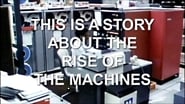Lance Le
Bombarded with images, sounds, and ideas that at times overgeneralizes and in other instances create bizarre connections, Curtis's documentary is deceptive, its true purpose buried in impressive editing and storytelling. This documentary is not actually a documentary, but is a story about how stories take on lives of their own and infect the imaginations of many human beings, especially those whose influence on the world makes the infections all the more dangerous.Flitting from idea to idea, Curtis weaves a narrative by linking somewhat disparate topics and attempts to convince us, the viewers, that his story is true. The world has been manipulated by an elite via computer networks. The idea of a balance in nature contributes to our misguided attempts at understanding nature. We become machines ourselves in the subjugation and erroneous divisions of colonized territories. But ah, these are just stories.Be careful of stories and ideas, Curtis warns, for they have a habit of dictating reality. In presenting us a somewhat plausible explanation of various events in recent history, he presents a story that may or may not be wholly factual, but satisfies that conspiracy theorist lurking underneath us all. The possibility of us accepting a "story" for "fact" is perhaps the essential point of this documentary. So when viewing All Watched Over, be mindful of that you are watching is simply a narrative about how narratives, if taken too religiously, could have terrible consequences.
Roger Burke
I generally watch documentaries based upon the topic or theme e.g. nuclear issues, language studies, ancient history, climate change and so on. Rarely do I watch one based upon the title only.This three-part examination of the relationship of computers to society is an exception: I was so intrigued by the title, having come from career of forty years in computers prior to my escape from corporate life, that I just had to see it.I wasn't disappointed. The writer/director (Adam Curtis) combines stock footage of computers, city and urban scenes, moody or discordant music, crowd scenes, famous people and a clever, cogent argument in an attempt to show the extent to which humanity has become entrapped by the IT revolution since the 1950s. It's a three part series and definitely worth every minute of your time. But, it's not only about computers...For starters, in Part 1, I could easily relate to Curtis's slant on the link between the extreme socio-economic philosophy of Ayn Rand that helped to influence Alan Greenspan's view of the world before and after various financial calamities, and up to the catastrophe of 2008. All of which was only possible – a crucially important fact – by pervasive, global computer technology used by greedy and opportunistic bankers, speculators and investors, all acting in their own self-interest.I can vouch for that, having been an insider with the online IT divisions of various banks in the UK and North America for fifteen years in the 1970s and 1980s. The standing joke in banks: you can't trust bankers. Wink, wink, nudge, nudge...Part 2 debunks the idea that nature is in equilibrium or seeks to find equilibrium. Instead, nature is in a constant state of flux and change, chaotic and unpredictable – and hence dangerous. (And, like it or not, humanity is part of nature.) This should be obvious – think of daily weather patterns globally. Curtis here links the emerging social networks as analogous to the chaos of nature which, coupled with our cancerous over-dependency upon computer technology, can only result in more unpredictability, uncertainty and opportunity for disaster. It's more than likely, I think, that Curtis is correct. To what extent, ultimately, is obviously opaque.Part 3 finishes the job in a somewhat elliptical fashion: you must follow the logic closely as we are introduced to an eminent scientist, William D. Hamilton and a brilliant mathematical genius, George R. Price. They argued that the real culprit in our chaotic existence is The Selfish Gene, a description that is now the title of Richard Dawkins's book that made him famous globally (It's an interesting, persuasive book and worth reading.) Humanity is then characterized as "soft" computer driven automata, explicitly removing the possibility of any spiritual or divine influence in human affairs.I can live with that, having decided long ago that we are all but organic machines with brains far, far superior to those "brains" of digital computers – thankfully. And the conclusion that crystallizes the essence of altruism – Ayn Rand's mortal enemy – is a tour de force of ironic tragedy.Graphically horrific images from recent depravities in Africa are interwoven to illustrate and prove the case; but it would totally spoil the finale to say anymore.Perhaps the editing of the series and some jump cutting are a mite fast at times; and the sound appears to fade occasionally. Apart from that, I highly recommend investing the three hours.Is Curtis showing us heaven on earth? See the movie. You be the judge.November 2011.
Guy
ALL WATCHED OVER MY MACHINES OF LOVING GRACE is a documentary purporting to explain the negative impact of computers and computer thinking on our society. But as this is Adam Curtis making it the result is a documentary that ranges from gorillas in the Congo to Ayn Rand rather than taking a straight A-Z. Unfortunately, in common with much of his other work, despite the sheer breadth of material covered and Curtis's undoubted skills in melding image and music, the actual argument is extremely dubious, poorly argued, lacking in evidence and frequently incoherent.Instead the documentary relies on Curtis's soothing tones (he does the v/o) and constant changes in ideas, music and images, in order to bamboozle the audience. This method of constant change prevents you thinking clearly as your attention is always being called to something else. Once the programme stops and you begin to think about it without the benefit of music, image and voice, you realise just how dodgy the whole argument is.My other usual problem is that, whenever Mr Curtis touches on a subject with which I am familiar, I usually discover he is wrong or at least generalising to a dangerous degree. Thus the entire section on the decolonisation of the Congo basically blames the Belgians and more generally the West for the near immediate collapse of that unhappy country. There is no hint that the inhabitants of the Congo could even think or act for themselves. Curtis paints a picture of local tribes living in perfect pre-European harmony (conveniently forgetting the original inhabitants of the Congo - the pygmies) that is at odds with reality. There are a large number of similar errors. My worry is that, if Curtis is so often wrong when he talks about things that I know well, then is he also wrong about the things I don't know well?The sad thing is that every poor Adam Curtis documentary is an opportunity lost. The BBC has frankly given up on even trying to make documentaries on such complex subjects (even BBC4 is more arts than intellect). And nobody else has access to such a great amount of archive or the funds to really sift through it (hence why you always see the same archive on documentaries).
IonGheorghePetre
I am a fan or Mr. Curtis' previous work but this documentary series was a disappointment for me.The thing I dislike the most is the biased and simple opinion on computers this documentary tries to promote. Apparently "computers" are powerful things that dehumanize our world, we put our faith in computers and they have failed us, completely ignoring the fact that computers are human made, human programmed and human controlled in every aspects. I expected a much more complex and realistic dissection of the topic.This idea is also poorly presented and motivated, for example when briefly talking about the internet, we are presented with the negative opinion of an early internet user, the scene is made in such a way as to suggest that indeed the internet is what that distressed user says. Similar to the cheap techniques a News program would use to influence the public opinion.Throughout the documentary I had the feeling that too much emphasis is put on the soundtrack and on the synchronizing of suggestive footage with music rather than actual relevant content and information.To summarize, "All Watched Over by Machines of Loving Grace" is tendentious, the idea presented is overly simplified and biased. It gave me the impression it was a bad propaganda movie against computers.




